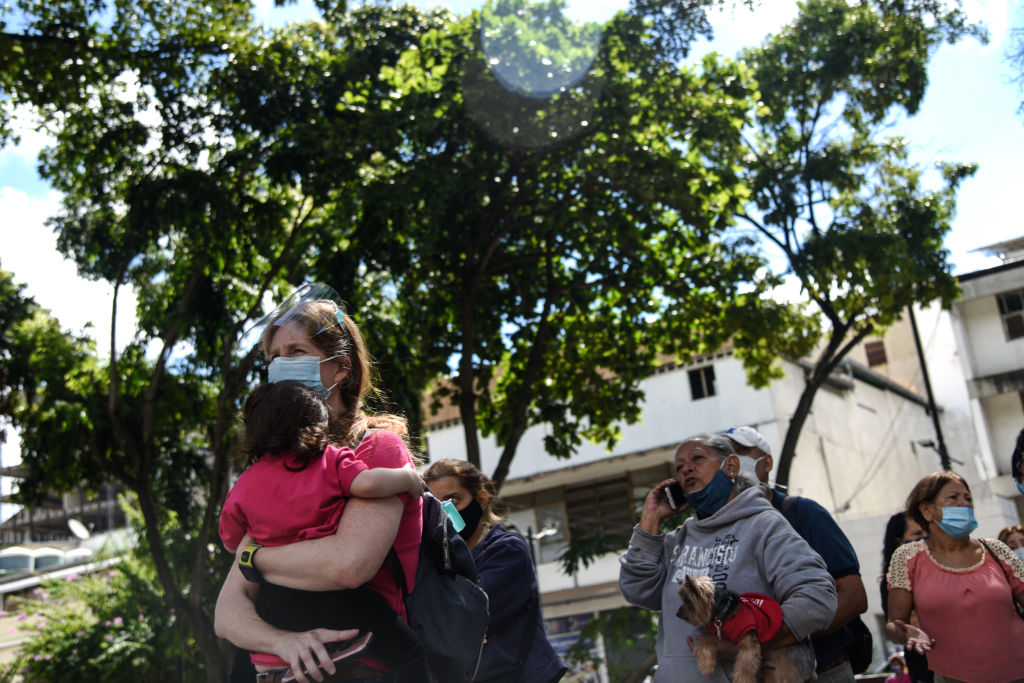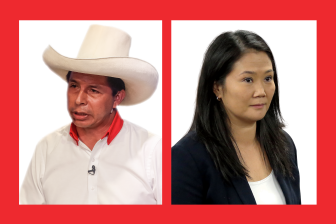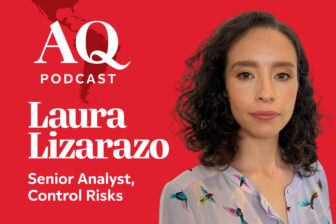MADRID – More than 6.5 million Venezuelans have already fled the misery in our country, and the United Nations projects that there will be more than 8 million displaced by the end of this year, amplifying the humanitarian emergency throughout the continent and making Nicolás Maduro’s dictatorship a serious threat to the stability of the hemisphere. The regime has triggered what is currently the second-largest — and may soon become the largest — migration crisis in the world.
After a complex year, the path to achieving freedom for Venezuela begins with reuniting those among us who are truly fighting for democracy, understanding our differences but focusing on what unites us: hunger for freedom, determination to punish human rights violations and concern for addressing the suffering of our people. That is the message we ask to be shared today.
Only in doing so will we be able to continue working together with multilateral international support. We are confident the Venezuelan people can count on the support of the administration of President Joe Biden. But while many of the actions that have been taken against the dictatorship are on the right track, we need to act in a cohesive way, one that puts direct pressure on the dictatorship and leaves no escape routes open. This is the unity that Venezuela needs today.
The operations that Maduro and his inner circle conduct with terrorist and drug trafficking groups pose an increasingly dangerous threat. Those in a position to usurp power will never be willing to give up their position, meaning that the regime has turned into a criminal organization with powerful international ramifications. This is a new type of totalitarianism, sophisticated and with more resources to evade national and international pressure.
For years, Venezuelan democrats have faced a regime willing to do anything to stay in power. We have pursued every path. Some of us have sacrificed our freedom. Many others have lost their lives at the hands of a criminal regime that seeks to maintain power at all costs.
We adopted the electoral path and, after a difficult battle for fair conditions, achieved a landslide victory in 2015 by winning a majority in the National Assembly. The response of the dictatorship was to ignore the popular will and persecute legitimate representatives.
We mobilized the people through peaceful protests. The response of the dictatorship was a policy of repression and extermination executed by police and military forces.
We took up negotiations alongside the Vatican and other countries, all the while striving for a non-traumatic solution for our people. The dictatorship’s response has always been the same: lies, mockery and deceit.
What alternatives are left to end the dictatorship? Why haven’t we succeeded, despite all our efforts and sacrifices? These are the understandable questions that our people have.
Venezuelan democrats have an obligation this year to reunify all the forces of change. And of course, that requires a profound reevaluation, one that involves learning from our mistakes and consolidating our unity. This unity will be essential to achieving our objectives. We are currently in the process of developing a new platform, and the legitimate president, Juan Guaidó, has made a sincere call to all political leaders to join forces, recognizing and respecting our differences.
However, unity also has a critical role in the application of international pressure. With much gratitude and respect to all the allies who have helped us, we request unity in action from all those who support the cause of freedom in Venezuela. International pressure must be articulated under a common strategy, one that is multilateral and adapted to face the reality of defeating a dictatorship of the 21st century. We have made progress in building this international front, but, to force a transition in Venezuela, the free world needs to coordinate around a single objective: the holding of free presidential elections.
In that sense, President Biden’s administration has a fundamental role to play. Secretary of State Antony Blinken has already recognized both President Guaidó’s legitimacy and that of the 2015 National Assembly before the U.S. Senate. The U.S.’s support for Venezuela’s freedom is bipartisan, firm and determined.
Although it is clear that sanctions are not the reason for the tragedy that we are living in Venezuela, the dictatorship invests in propaganda to make it seem so. Secretary Blinken has thus signaled the need to review sanctions to make them more damaging to the dictator and his accomplices. The 46 dictatorship officials — prosecutors, judges, police and military officers — who have been identified as responsible for committing crimes against human rights by the United Nations must be punished. At the same time, it is necessary to attend to the humanitarian tragedy and the suffering of Venezuelans: Today, millions struggle to merely survive.
I am deeply committed to consolidating unity of action in all fronts, inside and outside of Venezuela, and to this I will devote my efforts. Under the leadership of President Guaidó and with the support of the Biden administration, we can revitalize efforts against Maduro’s dictatorship and bring an end to a problem that belongs not only to Venezuela, but also to the region and the free world.
With great humility, we appreciate the bipartisan effort to protect Venezuelans who have sought a better future in the U.S. However, the only real solution to the fundamental problem is through political change in Venezuela.
Fuerza y fe.
—
López is a Venezuelan political leader living in exile in Spain.






